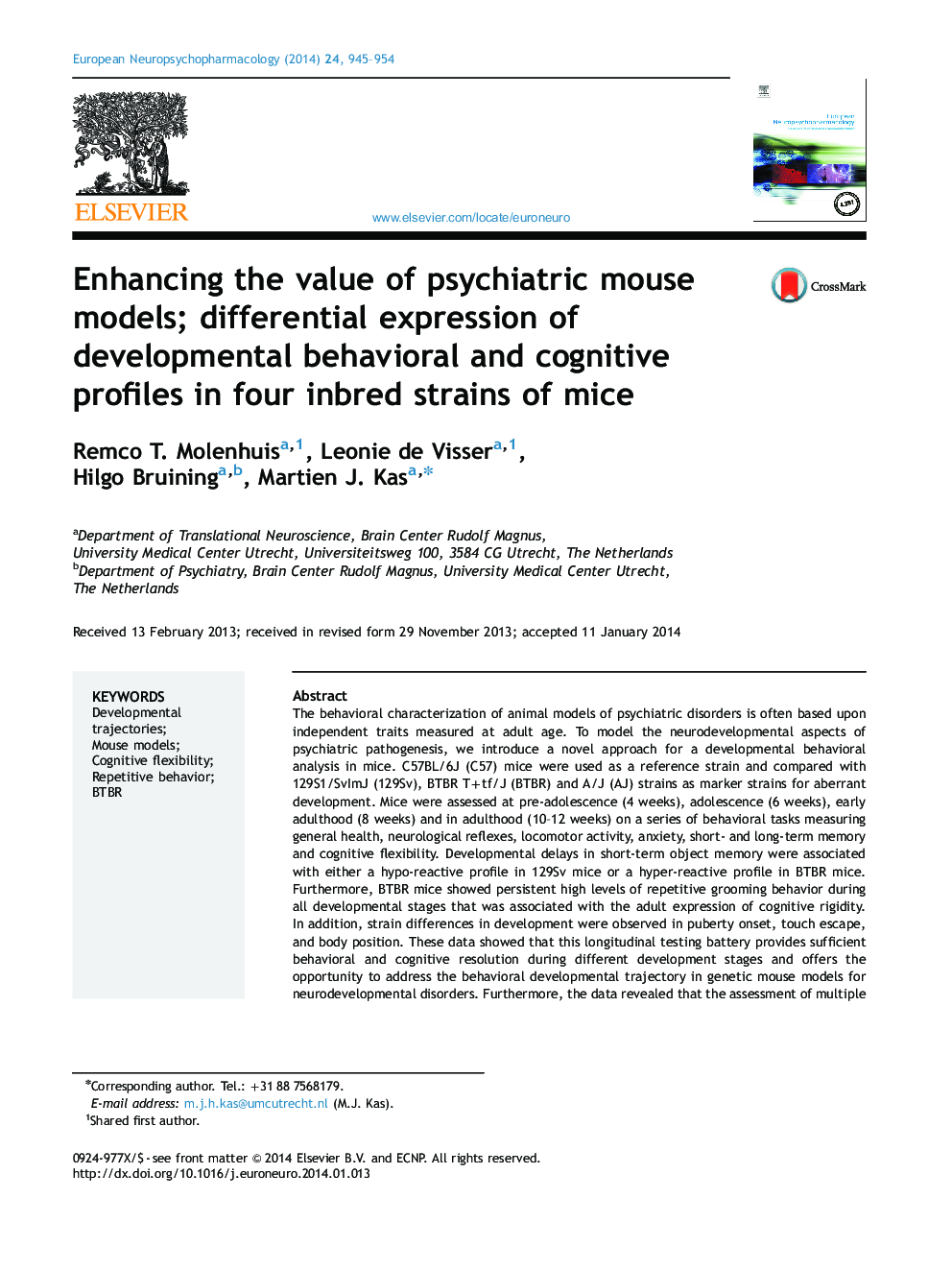| Article ID | Journal | Published Year | Pages | File Type |
|---|---|---|---|---|
| 10298110 | European Neuropsychopharmacology | 2014 | 10 Pages |
Abstract
The behavioral characterization of animal models of psychiatric disorders is often based upon independent traits measured at adult age. To model the neurodevelopmental aspects of psychiatric pathogenesis, we introduce a novel approach for a developmental behavioral analysis in mice. C57BL/6J (C57) mice were used as a reference strain and compared with 129S1/SvImJ (129Sv), BTBR T+tf/J (BTBR) and A/J (AJ) strains as marker strains for aberrant development. Mice were assessed at pre-adolescence (4 weeks), adolescence (6 weeks), early adulthood (8 weeks) and in adulthood (10-12 weeks) on a series of behavioral tasks measuring general health, neurological reflexes, locomotor activity, anxiety, short- and long-term memory and cognitive flexibility. Developmental delays in short-term object memory were associated with either a hypo-reactive profile in 129Sv mice or a hyper-reactive profile in BTBR mice. Furthermore, BTBR mice showed persistent high levels of repetitive grooming behavior during all developmental stages that was associated with the adult expression of cognitive rigidity. In addition, strain differences in development were observed in puberty onset, touch escape, and body position. These data showed that this longitudinal testing battery provides sufficient behavioral and cognitive resolution during different development stages and offers the opportunity to address the behavioral developmental trajectory in genetic mouse models for neurodevelopmental disorders. Furthermore, the data revealed that the assessment of multiple behavioral and cognitive domains at different developmental stages is critical to determine confounding factors (e.g., impaired motor behavior) that may interfere with the behavioral testing performance in mouse models for brain disorders.
Related Topics
Life Sciences
Neuroscience
Biological Psychiatry
Authors
Remco T. Molenhuis, Leonie de Visser, Hilgo Bruining, Martien J. Kas,
